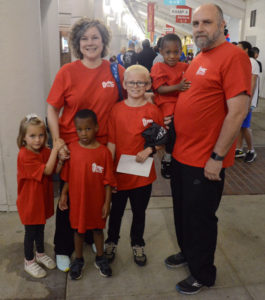By Steve Brawner
© 2019 by Steve Brawner Communications, Inc.
Eric and Kara Gilmore’s lives changed when they watched Meagan ride off in a Greyhound bus the day after her 18th birthday. She was exiting the foster care system with one bag of clothes, one night’s worth of bipolar meds, and a one-way bus ticket to Fort Smith where some biological family members she hadn’t seen in a while lived.
“That was her transition into adulthood,” he said.
The Gilmores had met Meagan when they were house parents in a group home when she was 14. They’d separated and then reconnected shortly before she turned 18. Watching that bus drive off, they believed someone needed to do something. So the Gimores formed Immerse Arkansas in 2010.
For foster children removed from their homes but never adopted, the stage where they age out of the system can be perilous. After lacking a stable home life during childhood, they sometimes face the complexities of early adulthood alone. And then they can get into real trouble.
State programs do help. Foster children ages 14 and older are eligible for transitional youth services to help them plan their adult lives. Teens can stay in extended foster care until their 21st birthday. Funds are available for education, job training and basic necessities during those years.
But as with any government program serving a challenging population, there are gaps, which Immerse Arkansas can help fill. And since its founding, it has broadened its mission to serve all young people in crisis, not just foster kids, including victims of abuse and sex trafficking. Continue reading Helping kids in crisis immerse into adulthood
